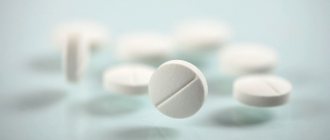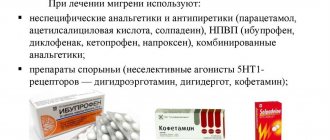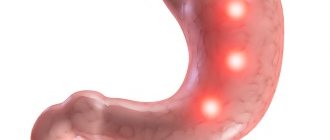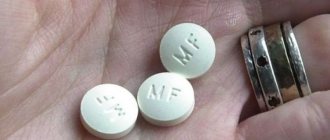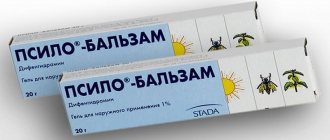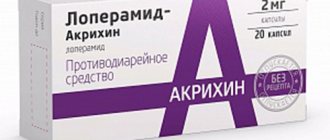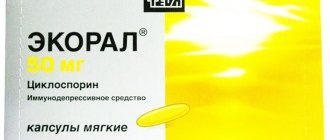Pharmacological action of activated carbon
Activated carbon is an adsorbent, detoxifying, antidiarrheal drug with high surface activity, due to which substances that reduce surface energy are bound without changing their chemical nature.
Coal sorbs a number of compounds:
- Alkaloids;
- Barbiturates;
- Gases;
- Glycosides;
- Salicylates;
- Salts of heavy metals;
- Toxins.
Under the influence of Activated Carbon, their absorption in the gastrointestinal tract is reduced and elimination from the body with feces is simplified.
As a sorbent, carbon is active during hemoperfusion. Weak adsorption towards acids and alkalis, including iron salts, cyanides, malathion, methanol, ethylene glycol. Does not irritate mucous membranes, and when applied topically, activated carbon accelerates the healing of ulcers.
To achieve maximum effect, it is recommended to take the tablets within the first hours or immediately after poisoning.
When treating intoxications, excess carbon is created in the stomach (before gastric lavage), as well as in the intestines (after gastric lavage).
High doses are required if there are food masses in the gastrointestinal tract: they are sorbed by carbon, reducing its activity. A low concentration of the drug leads to desorption and absorption of the bound substance. Repeated gastric lavage and administration of Activated Carbon, according to doctors, prevents the resorption of the released substance.
In cases where poisoning is caused by substances that take part in the enterohepatic circulation (cardiac glycosides, indomethacin, morphine or other opiates), the tablets should be taken for several days.
The adsorbent is particularly effective during hemoperfusion after acute poisoning with theophylline, glutethimide or barbiturates.
What is activated carbon
Each tablet contains activated carbon itself, black salt and a component that acts as an excipient (starch). Black salt is a substance produced industrially, which in its pure form has an adsorbing effect. It contains a large number of microelements that have a beneficial effect on all systems of the human body.
Adding black salt to the medicine helps reduce the loss of the adsorbing effect of coal, which can be significantly weakened due to the presence of starch. There is a composition that contains sugar instead of black salt, which is why such products have less effect of the active ingredients. The standard weight of one tablet is 0.6 g.
Activated carbon is a very effective means of removing harmful substances not only from the human body, but also from water or food. This is especially true in modern environmental conditions, since the use of tap water can be harmful to health due to the high content of heavy metals in it. Coal allows you to get rid of this problem.
Indications for use of Activated carbon
Activated carbon is indicated for the following diseases:
- Dyspepsia;
- Flatulence and other processes of rotting and fermentation in the intestines;
- Increased acidity and hypersecretion of gastric juice;
- Diarrhea;
- Acute poisoning, including glycosides, alkaloids, salts of heavy metals;
- Food poisoning;
- Dysentery;
- Salmonellosis;
- Burn disease in the stage of toxemia and septicotoxemia;
- Chronic renal failure;
- Chronic and acute viral hepatitis;
- Liver cirrhosis;
- Allergic reactions;
- Bronchial asthma;
- Atopic dermatitis.
Tablets are also prescribed to reduce gas formation in the intestines in preparation for ultrasound and x-ray examinations.
It is allowed to use Activated carbon for weight loss as an adjuvant after consulting a doctor and choosing an adequate diet.
Contraindications and overdose
Before resorting to treatment with activated carbon, it is necessary to find out whether a person has any contraindications to its use. This drug is prohibited for use in cases of hypovitaminosis, bleeding and malignant neoplasms of the gastrointestinal tract.
The drug is contraindicated in the presence of ulcerative lesions in the stomach or intestines, ulcerative colitis, acute and chronic pancreatitis. This is explained by the fact that coal tends to color feces black. The same effect is observed with intestinal bleeding of various etiologies. However, activated charcoal can confuse a person by masking bleeding. As a result, time for providing first aid to the patient will be lost.
Overdose
The listed contraindications do not apply to sorbents of other origins, such as Enterosgel, Polysorb.
Another contraindication to the use of any preparations based on activated carbon is the presence of individual intolerance caused by hypersensitivity to certain components.
An overdose of this drug in most cases manifests itself in the form of dyspeptic disorders and an allergic reaction. Such symptoms usually disappear after discontinuation of the drug and the use of appropriate therapy.
Using the product for a long time can provoke a decrease in the level of hormones and vitamins, as well as other substances necessary for the normal functioning of the body, which in turn requires medical intervention.
How to use Activated Carbon
Tablets or an aqueous suspension of activated carbon, according to the instructions, are taken orally 1 hour before meals and taking other medications. To obtain a suspension, the required amount of the drug is mixed in 0.5 cups of water.
The average daily dose for adults is 1-2 g, and the maximum is 8 g. The dose for children is calculated based on body weight - 0.05 g/kg 3 times a day, but not more than 0.2 mg/kg at a time .
For acute diseases, the course of treatment lasts 3-5 days, and for allergic or chronic diseases - up to 2 weeks. After 14 days, therapy can be repeated according to the doctor’s recommendations.
For dyspepsia or flatulence, activated carbon is taken orally 1-2 g 3-4 times a day for 3-7 days.
The suspension is used for gastric lavage in acute poisoning. Then drink the solution in 20-30 g doses.
With increased secretion of gastric juice, adults need 10 g 3 times a day between meals, children under 7 years old - 5 g, and children 7-14 years old - 7 g per meal. The course of treatment is 1-2 weeks.
How to use
When using activated carbon, the following rules must be observed:
- It must be remembered that this drug removes not only toxic compounds from the body, but also some useful ones. Therefore, before starting treatment, it is imperative to find out the cause of the disorder. So, if there are infectious or viral intestinal pathologies or dysbiosis, the use of coal can aggravate the situation, since this product deprives the intestinal microflora of useful substances that can fight pathogenic microorganisms.
- Another rule is to take plenty of water along with the drug. This is necessary so that the active substance can spread unhindered throughout the intestines. Therefore, it is better to dissolve the required amount of activated carbon tablets in plain water at medium temperature. This method of application will help achieve a faster onset of the therapeutic effect.
- If activated carbon is used for too long, vitamins and other beneficial substances are washed out of the body. Therefore, after completing the course of treatment with the drug, you should add more foods high in protein and vitamins to your diet.
- In order to prevent the development of diarrhea or chronic constipation, it is recommended to take probiotics for some time after completing the course of therapy. This will help restore the natural intestinal microflora.
Dosage regimen
In order to achieve a positive effect, activated carbon must be taken in strict accordance with the prescribed dosage.
It is important to remember that the drug should be stored exclusively in its packaging. After all, it can absorb any active substances that can harm the body.
Also, do not be afraid of black stools, which are observed after taking activated charcoal. The recipe in Latin is not known to everyone.
Interaction with alcohol
The use of Activated charcoal simultaneously with alcohol reduces the concentration of ethanol in the intestines, which leads to a decrease in the absorption of alcohol in the gastrointestinal tract, its metabolites and toxins into the bloodstream. The adsorbent allows you to avoid severe intoxication, helps reduce the effects of alcohol intoxication, and cleanses the body of poisons and ethanol metabolites.
Reviews
Activated carbon is a time-tested drug that quickly relieves the symptoms of any intoxication. Due to its affordable price and high efficiency, patients often use the drug in the treatment of food, alcohol and other poisonings, helps remove toxins and allergens, and is used as an antidote.
Compared to some modern sorbents, activated carbon is less effective, which means it needs to be taken in larger quantities. You can read even more reviews about the drug at the end of the article.
Analogs
Charcoal tablets for cleansing the body have a number of analogues:
- White coal . Contains silicon dioxide and microcrystalline cellulose. It is used as a food additive and is a source of enterosorbents. Contraindicated for stomach ulcers, not recommended for children under 14 years of age. When used during pregnancy and lactation, you should consult a specialist.
- Carbolong . The active ingredient is activated carbon. Produced in the form of round tablets or powder. It has a long-lasting effect, is practically not absorbed through the intestinal lumen, and is non-toxic. Indicated for food poisoning, flatulence, poisoning.
- Sorbolong . Contains enterosgel, inulin and auxiliary components. It absorbs poisons and toxins well, increases intestinal immunity, reduces endotoxin levels in the body, and stimulates gastrointestinal motility. Contraindicated in acute intestinal obstruction.
- Sorbex . Available in capsules. Has a detoxifying effect. Non-toxic, not absorbed and excreted unchanged. Effectively relieves symptoms of intoxication. Can be included in complex therapy for diseases of the intestines, liver and other organs.
- Lactofiltrum . The active ingredients are lignin and lactulose. Lignin has high absorbency. Lactulose stimulates the growth of normal intestinal microflora. It is not recommended to take the drug if you have a stomach ulcer.
- Enterosgel . Contains silicon dioxide. It effectively removes alcohol, toxins, viruses, and excess bile acids without interfering with the absorption of other nutritional components. It must be used for poisoning, intestinal infections, and food allergies.
- Smecta . It is produced as a powder for suspension for internal use, the active component of which is diosmectite (dioctahedral smectite). Has an antidiarrheal effect. Used for diarrhea, relieves heartburn symptoms. It is not absorbed in the intestines, but is excreted unchanged. Contraindicated in case of fructose intolerance.
All of the above analogues of the drug are sold without a prescription, they are safe for the body. However, their uncontrolled use can lead to side effects and even an overdose. Therefore, be sure to read the instructions on the package.
During pregnancy
The action of activated carbon occurs locally; the suspension of active substances is not absorbed into the bloodstream, so the sorbent does not act directly on the fetus. However, it should be remembered that an excess of the substance helps to reduce the absorption of vitamins and minerals, this can lead to hypovitaminosis and hypocalcemia, which pose a danger to the fetus in the early stages of pregnancy. An overdose of coal is also dangerous because it can cause uncontrollable vomiting and dehydration.
- How to pick up a car from an impound lot
- Colposcopy of the cervix, what is it?
- Antibiotics for sore throat in adults and children. List of effective antibiotics for treating sore throat and how to take it
Side effects
- Taking activated carbon may be accompanied by stool disorders (constipation, dyspepsia, diarrhea);
- When using the medicine for two or more weeks, disturbances in the absorption of calcium, as well as other vitamins and microelements, amino acids and fats are possible;
- During hemoperfusion, taking the drug can provoke embolism, hypoglycemia, hypocalcemia, hypotension and some other disorders;
- When using activated charcoal, the patient's stool turns black.
Actions in case of overdose
No information has been provided on cases of overdose.
Possibility of use during pregnancy
The drug can be prescribed to pregnant and lactating women. Activated carbon affects the body only through the intestines and does not enter the general bloodstream. Thus, taking the drug will not cause harm to the fetus or newborn.
Price
Average cost in Russia
Depending on the number of tablets weighing 250 mg, the price of a package of the drug is:
- 10 tablets – 4-9 rubles;
- 20 tablets – 19-23 rubles each;
- 30 tablets – 50-53 rubles;
- 50 tablets – 35-48 rub.
Average price in Ukraine
The tablets are only offered in packs of 10 with each tablet weighing 250, 275 or 280 mg. The cost of one package is from 1.5 to 4 UAH. At the same price, activated carbon with additives is also offered: fennel, chamomile, propolis, etc.
special instructions
In this section, each patient will be able to find some useful information for themselves.
Driving
It is not recommended to drive a car during treatment.
Pregnancy
This drug may be prescribed during pregnancy.
If you are breastfeeding, you may also continue to take this medication. But it is important to monitor how the child responds to the treatment provided. If suddenly he begins to be capricious or behave badly, then the medication is stopped. If his behavior, refusal to eat, etc. associated with taking medication, then the natural method of feeding should be excluded.
Reception by children
Children under 2 years of age should not take the medicine.
Kidney disorders
It is not recommended to take the medicine if you have impaired renal function.
In case of liver dysfunction
If a person has liver dysfunction, then taking the medicine is not allowed.
Sales of goods
Activated charcoal is an over-the-counter medication.
Contraindications
- Ulcers of the stomach or duodenum in the acute stage;
- Stomach bleeding;
- Ulcerative colitis;
- The drug is not prescribed simultaneously with antitoxic substances, the effect of which appears after absorption.
